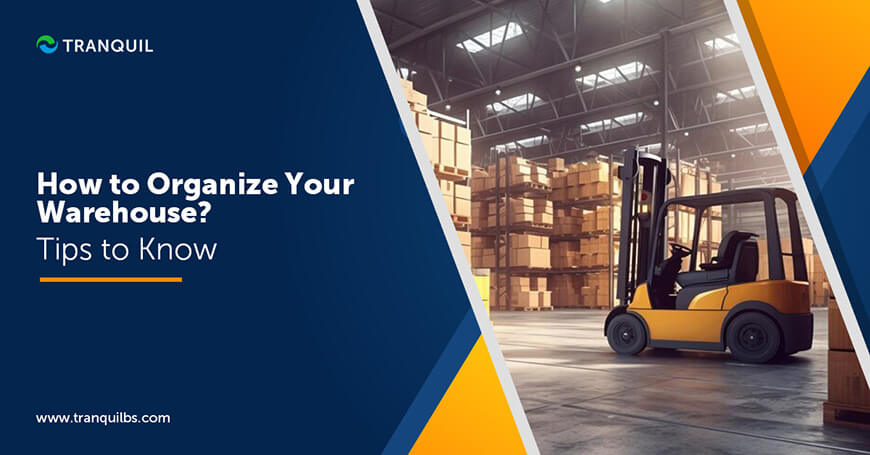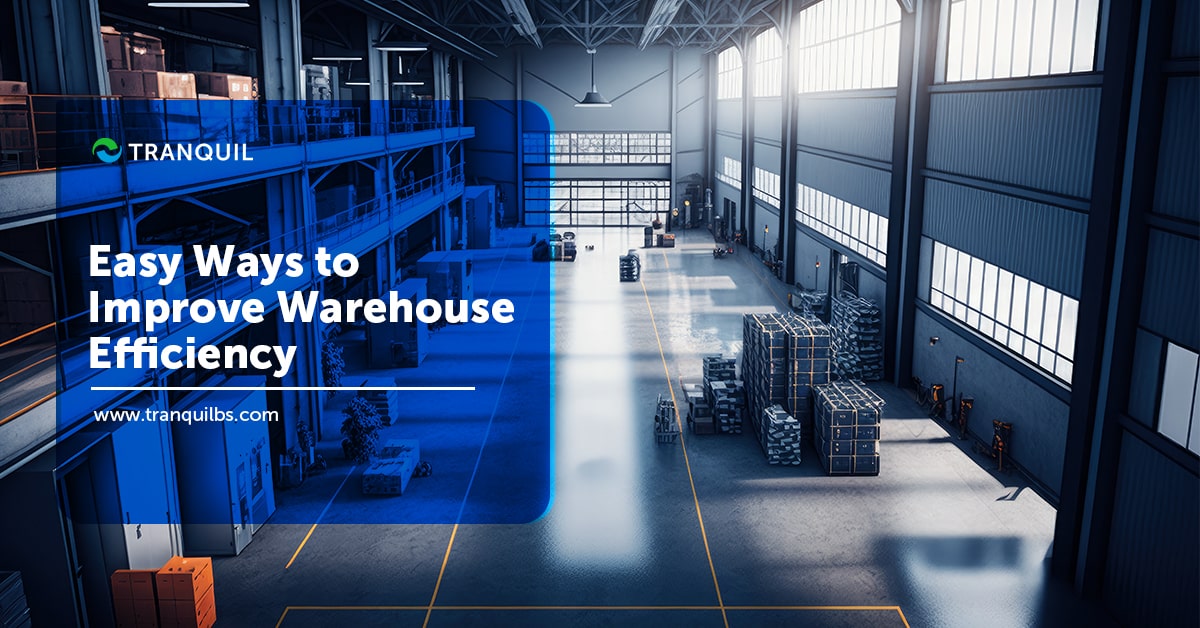
Warehousing Trends in 2023
As a retailer, distributor, or manufacturer, you need to expand your warehousing capabilities and facilities as your business grows.
Today’s consumers are demanding and discerning, and you need to up your game as far as distribution is concerned, and ensure that you implement the latest methods and technologies to be more efficient.
ALSO READ: Emerging Trends in Supply Chain Management
Latest Trends in Warehouse
Let’s look at some of the warehouse trends for 2023
1. Automation
Conventionally, warehouse operations necessitate a lot of labor.
This can be expensive and time-consuming.
Automation can reduce the need for labor in the warehouse to handle products, minimizing errors and providing enhanced safety to employees and goods.
While this is not exactly a one of the very new trends in warehousing, it is expected to be increase greatly.
Mobile robots, guided vehicles, drones, unmanned forklifts, automated inventory picking, and goods-to-person robots are some of the automation technologies warehouses can implement to boost efficiency.
Today, drones can fly inside warehouses using geolocation and AI to avoid obstacles, and capture inventory images with 2D scanners.
Collaborative mobile robots that ‘learn’ from their human handlers are also now in the market; they handle materials in close and cluttered spaces.
ALSO READ: Common Inventory Management Problems and Solutions
2. Warehouse Management Systems
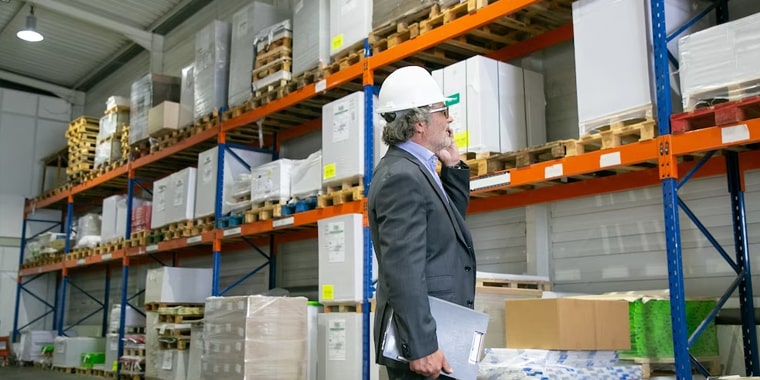
Several parties have to collaborate in order to store, track, and transport inventory efficiently.
With each working on their own tasks, visualizing changes in real-time can be difficult; but this problem can be overcome with the help of warehouse management systems that supervise and handle operations from the time of entry of goods into a warehouse till they are shipped out.
WMS leverages AI and big data, delivering analytics that help warehouse managers track performance and optimize processes.
WMS that enables visualization of warehouse processes, monitoring of operation status, and stock keeping management is today available, helping to deliver efficient customer service.
Some solutions also help control inventory, price, delivery etc. across multiple channels.
Modern solutions also use AI-driven BI to deliver inventory forecasts, financial analytics, and more.
ALSO READ: Guide on How Do ERP Systems Work
3. Inventory Tracking
When thousands of items keep flowing in and out, all the goods have to be properly tracked by managers so that there is minimal loss of inventory caused by theft and spoilage.
Today several technologies are available to track inventory efficiently, that eliminate possibility of human error and increase supply chain transparency.
Barcoding has limitations, which can be overcome by RFID which is radio-wave based and allows remote reading and detection.
OCR technology creates digital versions of printed documents that can be quickly added to databases, speeding up warehouse processes.
4. Wearables
As warehouse employees work in decentralized environments on tight deadlines, they have to be able to move freely.
This can now be easily achieved thanks to wearable technologies that offer hands-free mobility, and offer detailed information about the warehouse goods.
Smart glasses and gloves and exoskeletons boost productivity of employees by enabling them to carry out tasks with the right posture, and reduce physical effort too.
Smart glasses today feature inbuilt machine learning and AR technology, optimizing picking and improving communication between coworkers.
This is certainly one of the more innovative warehouse automation trends we can expect in this year.
ALSO READ: What is Zero Inventory?
5. Warehouse Design Modeling and Simulation Software

Ecommerce shoppers are an impatient lot and want their orders as quickly as possible.
To increase speed, suppliers today depend on numerous centers that are connected to one another and are capable of managing a range of customers in clusters.
This is made possible thanks to smart warehouse management.
Warehouse design has become extremely important today, as modeling and simulation software allows managers to visualize what the warehouse needs to look like.
With predictive analysis, a business can optimize the space depending on their inventory requirements.
Tasks like adding new SKUs to the warehouse are simplified.
Simulation can help in strategy formulation without disrupting the day-to-day operations.
6. Predictive and Prescriptive Analytics
Peak season business can be extremely challenging for online sellers.
By using AI and ML algorithms, however, this surge in demand, and requirement for additional labor can be eased.
These systems can churn out prescriptive analysis, based on information collected from earlier behavior of users and events.
Sellers can also see which items sell fast, or the areas where sales are the highest.
It can help inform the high-demand items so that they can be placed closer to loading docks.
ALSO READ: Important ERP Modules and Functions
7. Internet of Things

IoT solutions help in optimization and supervision of warehouse processes. Connected sensors track goods anywhere in the warehouse, keeping watch on conditions like lighting, moisture, temperature, and so on.
It makes use of real-time data to manage inventory and facilitate analytics.
The system can inform you if products need to be replaced.
IoT also extract WMS data to render real-time warehouse models, helping managers to locate inventory, visualize operations, simulate layout and workflow changes, and so on.
Private 5G LAN connectivity, tracking beacons, Bluetooth Low Energy technology, etc. simplifies operator task of tracking employees and inventory, and provides connectivity for autonomous vehicles and robots that necessitate real-time computing.
8. Gamification In The Warehouse
Distribution facilities often grapple with the challenge of keeping their employees engaged and happy – only then can they deliver great customer service.
An excellent way to achieve this is through gamification – leaderboards, recognition both individual and team, leaderboards, reward programs, employee feedback, and so on.
These factors are today included in most warehouse management systems and are playing a critical role in the modernization and optimization of retail supply chains.
ALSO READ: Benefits of Warehouse Management System
9. Immersive Reality
Quick delivery of correct products to the correct location within the facility requires trained personnel and effective equipment.
Many warehouses are now including immersive reality solutions to ensure high-level efficiency of employees.
The implementation of new procedures, planning expansion of warehouses, delivery process designing and predictive modeling – all of this can be simplified with AR and VR.
With immersive training driven by virtual reality, you can improve employee skills; optimizing the route to specific items and product searches can be enhanced with the help of augmented reality.
As operations can be visualized better with immersive reality tech, it can help improve decision-making processes.
VR and AR can also be used to train employees on using forklifts, safety procedures, making them understand consequences of wrong methods in real life, and so on.
ALSO READ: Benefits of Having an Employee Self Service System
10. Warehouse Security
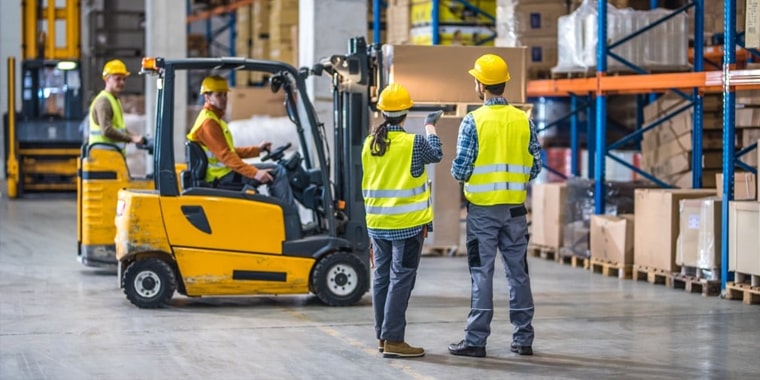
Warehouses store inventory, which has monetary value, and hence, likely to attract unscrupulous persons who may try to steal the goods.
Ensuring security in the warehouse is therefore crucial for owners and businesses.
Warehouses implement a number of security measures like video surveillance, alarms, motion sensors, broken glass detectors, smart locks, and so on.
They are also choosing to shift their data to the cloud, which lets them transmit data across widespread networks.
Data protection and warehousing security solutions protect data from being breached or stolen.
Blockchain is one such technology that helps make supply chain operations traceable and transparent, and help to mitigate the risk of data breach and fraud.
Thanks to cyber risk management systems, warehouses can not only evaluate the potential risks, but also take steps to rectify any gaps in their security.
The total cost of investment in ensuring warehouse security is totally worth it when you consider the possible loss that could happen with data breaches or theft of valuable products.
ALSO READ: 8 Benefits Of Software As A Service
11. Sustainable Warehousing
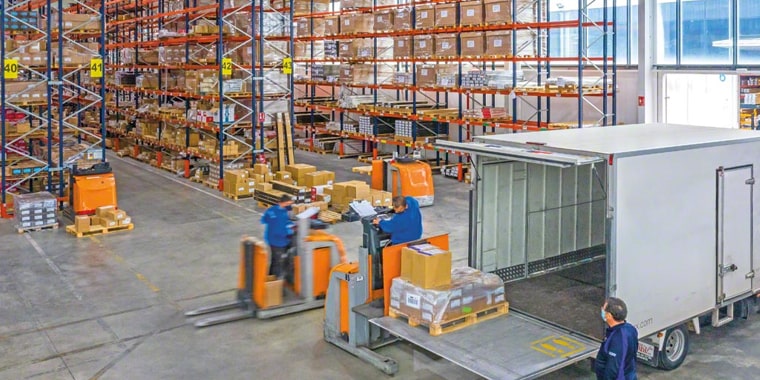
Warehouses generate a tremendous amount of garbage in the course of normal operations.
Waste management has become a pressing issue all over the world, across industries and businesses, and is also very crucial in warehousing as well.
Warehouse owners and managers are moving heaven and earth to minimize the environmental impact of their operations, and making the move towards sustainable or green warehousing.
The use of automated handling is one major step being adopted by warehouses to reduce their carbon footprint.
By using efficient equipment that emits less and is capable of running without lighting, they can cut back on energy spends.
They also seek to reduce, reuse, and recycle packaging material, plastic containers, pallets, and other warehouse articles to bring down the waste generated substantially.
Green warehousing trends recommend frugal and efficient utilization of resources and energy to reduce the climatic impact of the industry.
Sustainable warehouse solutions also include optimizing the capacity and minimizing space required, and scaling as business needs grow.
Compostable packaging and pallet wraps are also making their appearance in the market, and this will significantly help warehouses to reduce waste.
ALSO READ: A Guide To Inventory Stock Valuation
12. Fleet Management
Ensuring safe and effective interaction between employees and equipment helps boost productivity and eliminates safety risks.
Warehouse layout optimization, minimizing forklift accidents, monitoring assets in real time, improving the health and safety of drivers – all of this can be achieved with proper fleet management.
A wide range of warehouse vehicles like forklifts, conveyor belts, mobile robots, AGV, and hand trucks, are part of the fleet.
Downtime can be reduced via telematics solution, and drivers and vehicles can be kept on schedule if you streamline the maintenance processes and automate updates in real time.
Fleet management systems can integrate forklifts and all types of robots on a single platform, provided manual activities are replaced by those robots and vehicles.
It helps in controlling traffic, eases automatic allocation of tasks, facilitates interoperability, affording complete control over the machinery.
ALSO READ : Physical Stock Verification and Its Advantages
To Wrap Up
Automation is inevitable today in any field; it not only improves safety and efficiency, it also helps in saving money, and delivering better customer services, which eventually translates into higher revenues and more profitability.
All of the above trends can be integrated and implemented via robust warehouse management systems like that of Tranquil ERP.
If you are a warehouse owner and are confused about the best way to go about improving the efficiency in your warehouse, we can show you how you can make it happen. Do schedule a FREE demo of our solution at a time that’s convenient for you, and we will take you through it, and answer all your queries.
Don’t delay – take the first step towards an efficient warehouse now!

